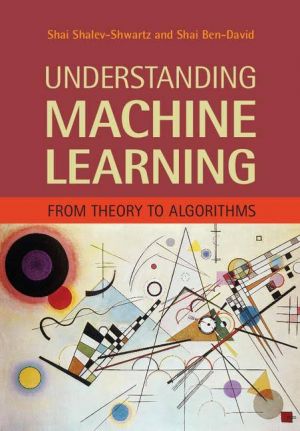Understanding Machine Learning
From Theory to Algorithms
by Shai Shalev-Shwartz, Shai Ben-David
DescriptionTable of ContentsDetailsHashtagsReport an issue 





Book Description
The subject of this book is automated learning, or, as we will more often call it, Machine Learning (ML). That is, we wish to program computers so that they can "learn" from input available to them. Roughly speaking, learning is the process of converting experience into expertise or knowledge. The input to a learning algorithm is training data, representing experience, and the output is some expertise, which usually takes the form of another computer program that can perform some task. Seeking a formal-mathematical understanding of this concept, we'll have to be more explicit about what we mean by each of the involved terms: What is the training data our programs will access? How can the process of learning be automated? How can we evaluate the success of such a process (namely, the quality of the output of a learning program)?This open book is licensed strictly for personal or educational use. You can download Understanding Machine Learning ebook for free in PDF format (3.5 MB).
Table of Contents
Chapter 1
Introduction
Part I
Foundations
Chapter 2
A Gentle Start
Chapter 3
A Formal Learning Model
Chapter 4
Learning via Uniform Convergence
Chapter 5
The Bias-Complexity Tradeoff
Chapter 6
The VC-Dimension
Chapter 7
Nonuniform Learnability
Chapter 8
The Runtime of Learning
Part II
From Theory to Algorithms
Chapter 9
Linear Predictors
Chapter 10
Boosting
Chapter 11
Model Selection and Validation
Chapter 12
Convex Learning Problems
Chapter 13
Regularization and Stability
Chapter 14
Stochastic Gradient Descent
Chapter 15
Support Vector Machines
Chapter 16
Kernel Methods
Chapter 17
Multiclass, Ranking, and Complex Prediction Problems
Chapter 18
Decision Trees
Chapter 19
Nearest Neighbor
Chapter 20
Neural Networks
Part III
Additional Learning Models
Chapter 21
Online Learning
Chapter 22
Clustering
Chapter 23
Dimensionality Reduction
Chapter 24
Generative Models
Chapter 25
Feature Selection and Generation
Part IV
Advanced Theory
Chapter 26
Rademacher Complexities
Chapter 27
Covering Numbers
Chapter 28
Proof of the Fundamental Theorem of Learning Theory
Chapter 29
Multiclass Learnability
Chapter 30
Compression Bounds
Chapter 31
PAC-Bayes
Appendix A
Technical Lemmas
Appendix B
Measure Concentration
Appendix C
Linear Algebra
Book Details
Title
Understanding Machine Learning
Subject
Computer Science
Publisher
Cambridge University Press
Published
2014
Pages
449
Edition
1
Language
English
ISBN13 Digital
9781107057135
ISBN10 Digital
1107057132
PDF Size
3.5 MB
License
For personal or educational use
Related Books
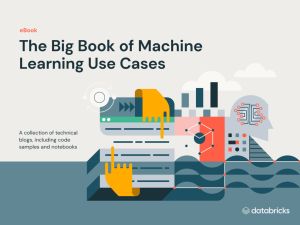
The world of machine learning is evolving so quickly that it's challenging to find real-life use cases that are relevant to your day-to-day work.
That's why we've created this comprehensive guide you can start using right away. Get everything you need - use cases, code samples and notebooks - so you can start putting the Databrick...
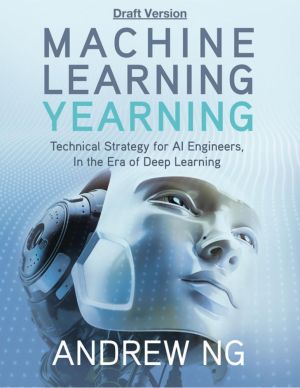
AI is transforming numerous industries. Machine Learning Yearning, a free ebook from Andrew Ng, teaches you how to structure Machine Learning projects.
This book is focused not on teaching you ML algorithms, but on how to make ML algorithms work. After reading Machine Learning Yearning, you will be able to:
- Prioritize the most promising direc...
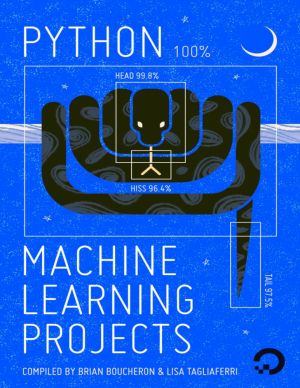
As machine learning is increasingly leveraged to find patterns, conduct analysis, and make decisions - sometimes without final input from humans who may be impacted by these findings - it is crucial to invest in bringing more stakeholders into the fold. This book of Python projects in machine learning tries to do just that: to equip the developers ...
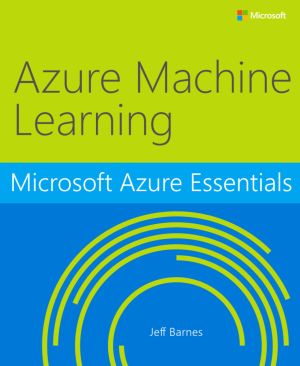
This third ebook in the series introduces Microsoft Azure Machine Learning, a service that a developer can use to build predictive analytics models (using training datasets from a variety of data sources) and then easily deploy those models for consumption as cloud web services. The ebook presents an overview of modern data science theory and princ...
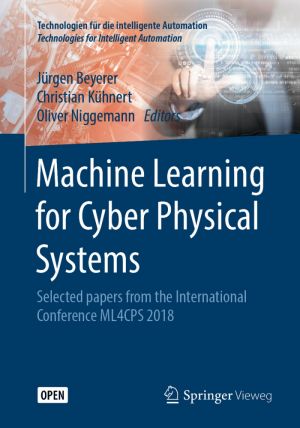
This book proceedings presents new approaches to Machine Learning for Cyber Physical Systems, experiences and visions. It contains some selected papers from the international Conference ML4CPS - Machine Learning for Cyber Physical Systems, which was held in Karlsruhe, October 23-24, 2018. Cyber Physical Systems are characterized by their ability to...
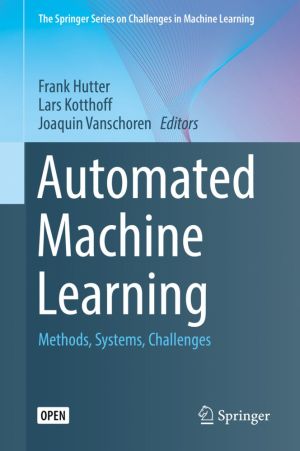
This book presents the first comprehensive overview of general methods in Automated Machine Learning (AutoML), collects descriptions of existing systems based on these methods, and discusses the first series of international challenges of AutoML systems. The recent success of commercial ML applications and the rapid growth of the field has created ...

